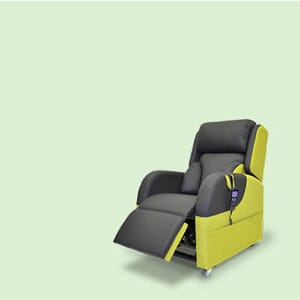For people with a disability, reduce mobility, postural problems or those recovering from or living with injury or a medical condition, the workplace can be a very challenging environment.
Unfortunately, many employers are unaware that a few simple adjustments, such as supplying specialist seating and fully adjustable workstations, can make the difference to the happiness of the entire office; and not just the person who needs extra support.
Specialist seating for one can play a role in boosting the morale of a whole team
Happiness can be contagious; so creating a working environment that is comfortable, flexible, and aids mobility can transform the way a person feels and acts at work. In turn, this can affect a whole team with people becoming more productive and less prone to absenteeism.
Thanks to recent advancements in specialist chair technology and ergonomics, it is no longer difficult for employers to provide inclusive and stylish working environments for all.
More importantly, as an employer, you are bound by law to ensure you are not discriminating against any member of your workforce, however complex their needs.
It makes good business sense and is required by law
Under the Equality Act 2010, there is a legal duty on employers to make ‘reasonable adjustments’ for disabled employees. These might include: making adjustments to premises, altering their working hours, allowing absence for rehabilitation, absence or treatment, arranging or giving extra training or acquiring or modifying equipment.
The first step employers can take is to acknowledge that there is a need for additional equipment, such as specialist chairs. The next is to work with the individual’s occupational therapist or healthcare provider, and specialist seating experts, to assess a workplace properly.
Once a full assessment has taken place, a suitable solution can be recommended.
Choosing specialist chairs for the workplace
Things we recommend you consider:
- Is the height adjustable so that a person can work at a desk at the optimum height, as well as access shelves?
- Is it manoeuvrable so someone can get around an office easily?
- Does it come with special seats, a backrest, body support and neck rest to contribute to an ergonomic sitting posture?
- Does it have armrests to support arms, wrists and hands and provide safety for people with poor balance or less strength in legs?
- Is the angle adjustable for a change of position or pressure relief during the working day?
For more information on how Premiere Healthcare can support you when choosing specialist seating, please get in touch.










